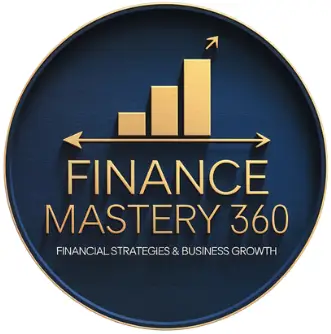Ethical investing has gained significant traction in recent years as investors increasingly seek to align their portfolios with their personal values. This approach, also known as sustainable or responsible investing, considers environmental, social, and governance (ESG) factors alongside traditional financial metrics. In 2023, global sustainable fund assets reached a record $2.5 trillion, highlighting the growing importance of this investment strategy.
Understanding ethical investing and its impact
Ethical investing goes beyond merely seeking financial returns. It’s about making investment decisions that reflect your moral principles and contribute to positive societal change. As a financial expert with over 15 years of experience, I’ve witnessed firsthand the transformative power of aligning investments with personal values.
Environmental, Social, and Governance (ESG) factors form the cornerstone of ethical investing. These criteria help evaluate a company’s overall sustainability and ethical impact:
- Environmental factors: Carbon footprint, renewable energy usage, water management
- Social factors: Human rights practices, labor standards, diversity initiatives
- Governance factors: Board diversity, executive compensation, shareholder rights
By integrating these factors into investment decisions, ethical investors aim to support companies that prioritize sustainability and responsible business practices. This approach not only aligns with personal values but also has the potential to drive long-term financial performance.
Strategies for ethical investing
Implementing an ethical investment strategy requires careful consideration and research. Here are some popular approaches to align your portfolio with your values:
- ESG integration: Incorporating ESG factors into traditional financial analysis
- Exclusionary screening: Avoiding investments in companies or industries that conflict with your values
- Impact investing: Targeting investments that generate measurable social or environmental benefits alongside financial returns
To put these strategies into practice, consider exploring various investment options such as ESG mutual funds, exchange-traded funds (ETFs), and socially responsible investment (SRI) funds. These vehicles offer diversified exposure to companies with strong ESG practices.
It’s crucial to conduct thorough due diligence when selecting ethical investments. Utilize ESG ratings and research from reputable providers like MSCI and Morningstar to evaluate potential investments. Remember, as with any investment strategy, diversification remains key to managing risk and potential returns.

Building an ethical investment portfolio
Creating a portfolio that aligns with your values requires a systematic approach. Here’s a step-by-step guide to help you get started:
| Step | Action |
|---|---|
| 1 | Define your values and investment goals |
| 2 | Research ethical investment options |
| 3 | Evaluate investment products based on ESG criteria |
| 4 | Build a diversified portfolio |
| 5 | Monitor and rebalance regularly |
When defining your values, consider which issues matter most to you. Are you passionate about climate change, social justice, or corporate transparency? Your answers will guide your investment decisions and help you focus on companies that align with your priorities.
As you build your portfolio, be mindful of potential challenges such as greenwashing – the practice of making misleading claims about a company’s environmental or social impact. To avoid falling victim to greenwashing, rely on multiple data sources and conduct thorough research before making investment decisions.
The advantages and challenges of ethical investing
Ethical investing offers several compelling advantages:
- Alignment with personal values
- Potential for positive societal impact
- Long-term financial gains
- Support for sustainable business practices
Studies have shown that companies with strong ESG practices often exhibit better financial performance over time. For instance, a 2021 study by NYU Stern Center for Sustainable Business found that ESG initiatives drove better financial performance for 58% of the companies reviewed.
However, it’s important to acknowledge the challenges associated with ethical investing:
- Limited investment options in some sectors
- Potential for lower short-term returns
- Subjectivity in defining and measuring ethical criteria
- Difficulty in assessing true impact
Despite these challenges, the field of ethical investing continues to grow and evolve. As more investors demand sustainable and responsible investment options, the market is responding with an increasing array of products and strategies.
Embracing the future of ethical investing
Ethical investing represents a powerful tool for aligning your financial goals with your personal values. By considering ESG factors alongside traditional financial metrics, you can potentially achieve both financial returns and positive social impact.
As the field of ethical investing continues to mature, we can expect to see more sophisticated tools and strategies emerge. This evolution will likely make it easier for investors to accurately assess the impact of their investments and make informed decisions.
Remember, ethical investing is not just about avoiding harmful investments; it’s about actively supporting companies that are driving positive change. By embracing this approach, you can play a role in shaping a more sustainable and equitable future while potentially benefiting from long-term financial gains.
As we move forward, the integration of ethical considerations into investment decisions is likely to become the norm rather than the exception. By starting your ethical investing journey today, you’re not only aligning your portfolio with your values but also positioning yourself at the forefront of a transformative shift in the investment landscape.




